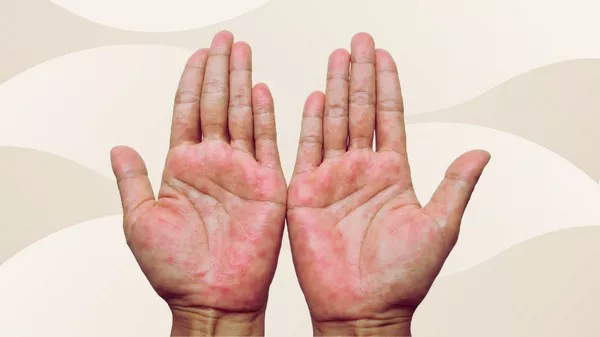Eczema, also known as atopic dermatitis, is a chronic skin condition that causes inflammation, redness, and irritation. It can affect various parts of the body, including the stomach. Treating eczema on the stomach requires a multifaceted approach, combining lifestyle changes, topical treatments, and sometimes systemic therapies. This article provides a detailed guide on how to manage and treat eczema specifically in the abdominal area.
Understanding Eczema on the Stomach
Eczema is characterized by its itchy, inflamed skin patches. When it appears on the stomach, it can be particularly uncomfortable due to the area’s flexibility and frequent contact with clothing. Several factors contribute to eczema flare-ups, including genetic predisposition, environmental triggers, and skin barrier dysfunction.
Symptoms
On the stomach, eczema may present as:
- Red, inflamed patches
- Dry, scaly skin
- Itching and discomfort
- Crusting or oozing in severe cases
Causes and Triggers
Understanding the underlying causes and triggers is crucial for effective treatment:
- Genetics: A family history of eczema, asthma, or allergies increases susceptibility.
- Environmental Factors: Changes in weather, exposure to allergens like dust mites or pet dander, and irritants such as certain fabrics can exacerbate symptoms.
- Skin Care Products: Soaps, detergents, and lotions with fragrances or harsh chemicals can irritate sensitive skin.
- Diet: Certain foods may trigger flare-ups in some individuals.
Treatment Strategies for Eczema on the Stomach
1. Skincare Routine
A consistent skincare routine is foundational in managing eczema:
- Moisturize Regularly: Use emollient-rich moisturizers to keep the skin hydrated and prevent dryness. Opt for fragrance-free, hypoallergenic products. Apply moisturizers immediately after bathing to lock in moisture.
- Gentle Cleansing: Choose mild, non-soap cleansers that are free of dyes and fragrances. Avoid hot water, which can strip the skin of natural oils. Lukewarm water is preferred.
- Avoid Scratching: Scratching can worsen eczema and lead to skin infections. Keep nails trimmed and consider wearing soft cotton gloves to prevent scratching, especially during sleep.
2. Topical Treatments
Topical treatments are essential in controlling inflammation and itching:
- Topical Steroids: These are commonly prescribed to reduce inflammation and itching. Use them as directed by your healthcare provider, typically applying a thin layer to the affected area once or twice daily.
- Topical Calcineurin Inhibitors: These are alternatives to steroids for sensitive areas and are used to reduce inflammation without thinning the skin. Examples include tacrolimus (Protopic) and pimecrolimus (Elidel).
- Coal Tar Preparations: Coal tar can help reduce itching and scaling. It’s often used for chronic eczema but may have an unpleasant odor.
3. Lifestyle and Environmental Modifications
Adapting your environment and lifestyle can help manage eczema:
- Avoid Triggers: Identify and avoid specific triggers like certain fabrics, detergents, or foods. Keeping a diary can help track potential triggers.
- Wear Breathable Fabrics: Choose loose-fitting, soft, and breathable fabrics such as cotton. Avoid wool and synthetic materials that can irritate the skin.
- Maintain a Comfortable Environment: Use a humidifier to maintain moisture in the air, especially in dry or heated environments. Keep the temperature moderate to avoid sweating, which can exacerbate eczema.
4. Dietary Considerations
Diet can play a role in eczema management:
- Anti-Inflammatory Diet: Incorporate foods rich in omega-3 fatty acids, such as fatty fish, flaxseeds, and walnuts. These can help reduce inflammation.
- Allergen Avoidance: If you suspect certain foods trigger your eczema, consider an elimination diet under the guidance of a healthcare professional. Common allergens include dairy, eggs, and nuts.
5. Systemic Treatments
In severe cases where topical treatments are insufficient:
- Oral Medications: Systemic corticosteroids can be used for short-term flare-ups. Long-term use is typically avoided due to potential side effects.
- Immunomodulators: Oral medications like cyclosporine can be prescribed to suppress the immune system and reduce inflammation.
- Biologic Drugs: Newer treatments, such as dupilumab (Dupixent), target specific pathways involved in eczema. These are typically reserved for severe cases.
SEE ALSO: How Can I Stop Itching My Eczema?
Home Remedies and Alternative Therapies
Some individuals find relief through alternative treatments, though these should complement rather than replace conventional therapy:
- Oatmeal Baths: Colloidal oatmeal can soothe itching and inflammation. Add it to a lukewarm bath and soak for 15-20 minutes.
- Coconut Oil: Known for its moisturizing and anti-inflammatory properties, coconut oil can be applied directly to the skin.
- Aloe Vera: Aloe vera gel has soothing properties and can help reduce inflammation and itching.
When to Seek Professional Help
Consult a healthcare provider if:
- Eczema does not improve with over-the-counter treatments.
- There is significant pain, infection, or swelling.
- Symptoms are impacting daily life or causing psychological distress.
A dermatologist can provide a tailored treatment plan and may conduct tests to identify underlying allergies or other contributing factors.
Preventive Measures
Taking proactive steps can help manage eczema long-term:
- Regular Check-ups: Regular visits to a dermatologist can help monitor and adjust treatment plans as needed.
- Education: Stay informed about eczema management and new treatments through credible sources.
- Support Networks: Joining eczema support groups or online forums can provide valuable advice and emotional support.
Conclusion
Treating eczema on the stomach involves a combination of effective skincare routines, topical and systemic treatments, lifestyle adjustments, and possibly dietary changes. While eczema can be a challenging condition, with the right approach, its symptoms can be managed effectively. Adapting to a personalized treatment plan and seeking professional guidance when necessary will help maintain comfort and improve quality of life for those affected by this condition.
Related Topics:


























